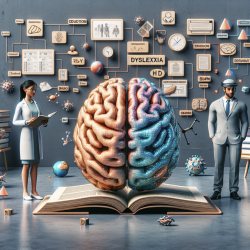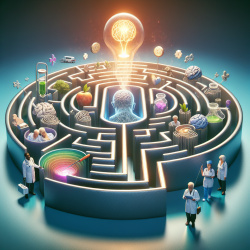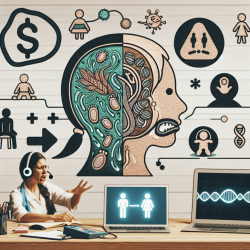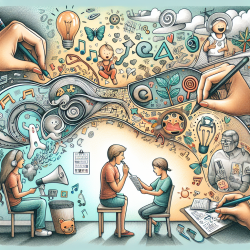Introduction
Dyslexia, a prevalent reading disorder, affects approximately 3-7% of the population. Despite being a common issue, the classification of dyslexia as a neurodevelopmental disorder has been debated. This blog post explores the findings from the research article "Dyslexia as a Neurodevelopmental Disorder and What Makes It Different from a Chess Disorder" and highlights how practitioners can utilize these insights to improve their interventions.
Harm and Dysfunction in Dyslexia
The research emphasizes that dyslexia should be considered a neurodevelopmental disorder due to the significant harm and dysfunction it causes. Reading is an essential skill for academic and professional success, and dyslexia can severely impact an individual's quality of life. The persistent nature of dysfluent reading in dyslexics, even after interventions, underscores the need for early identification and tailored support.
Neurobiological Insights
Neuroimaging studies have provided critical insights into the brain networks involved in reading. Dyslexics often exhibit atypical development of these networks, which affects their ability to read fluently. Understanding these neurobiological underpinnings can help practitioners design more effective interventions that target specific deficits in reading processes.
Practical Implications for Practitioners
Practitioners can leverage the research findings to enhance their approaches to dyslexia. Here are some key strategies:
- Utilize neuroimaging insights to identify specific reading deficits and tailor interventions accordingly.
- Focus on early identification and intervention to improve outcomes for children with dyslexia.
- Incorporate evidence-based practices that address the neurobiological aspects of dyslexia.
- Encourage further research to refine diagnostic criteria and intervention strategies.
Conclusion
Understanding dyslexia as a neurodevelopmental disorder provides a framework for more effective interventions. By incorporating neuroscience insights, practitioners can better support individuals with dyslexia, ultimately improving their educational and life outcomes. For those interested in further exploring this topic, I encourage you to read the original research paper: Dyslexia as a Neurodevelopmental Disorder and What Makes It Different from a Chess Disorder.










